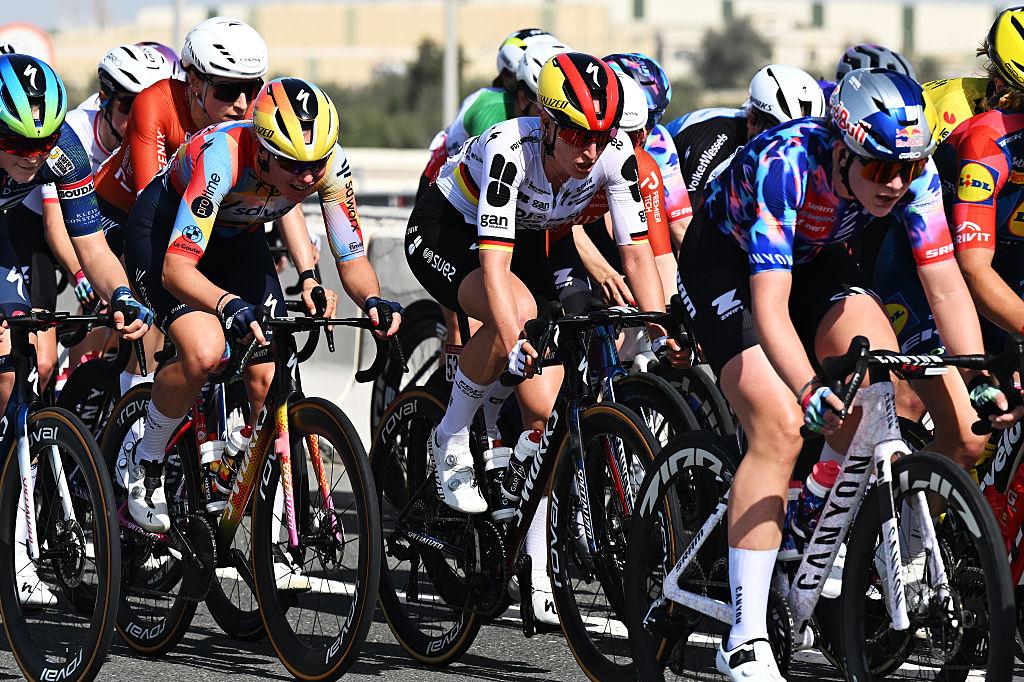Chris Horner Q&A: 'If my lungs come good, you'll see my full potential'
2013 Vuelta winner talks about his new team, retroactive anti-doping tests and his ongoing health issues
The latest race content, interviews, features, reviews and expert buying guides, direct to your inbox!
You are now subscribed
Your newsletter sign-up was successful
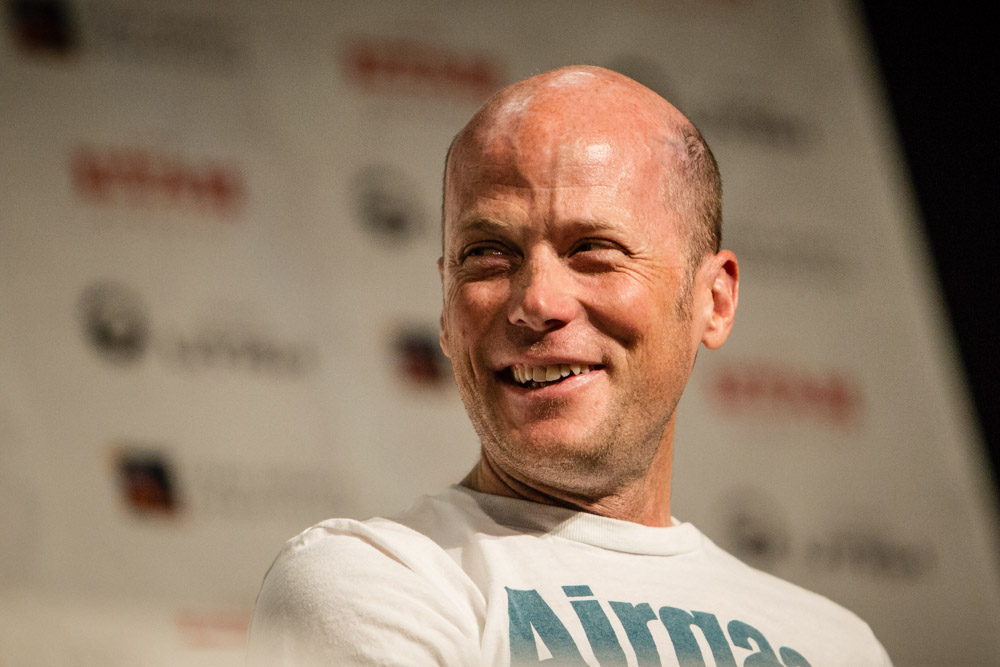
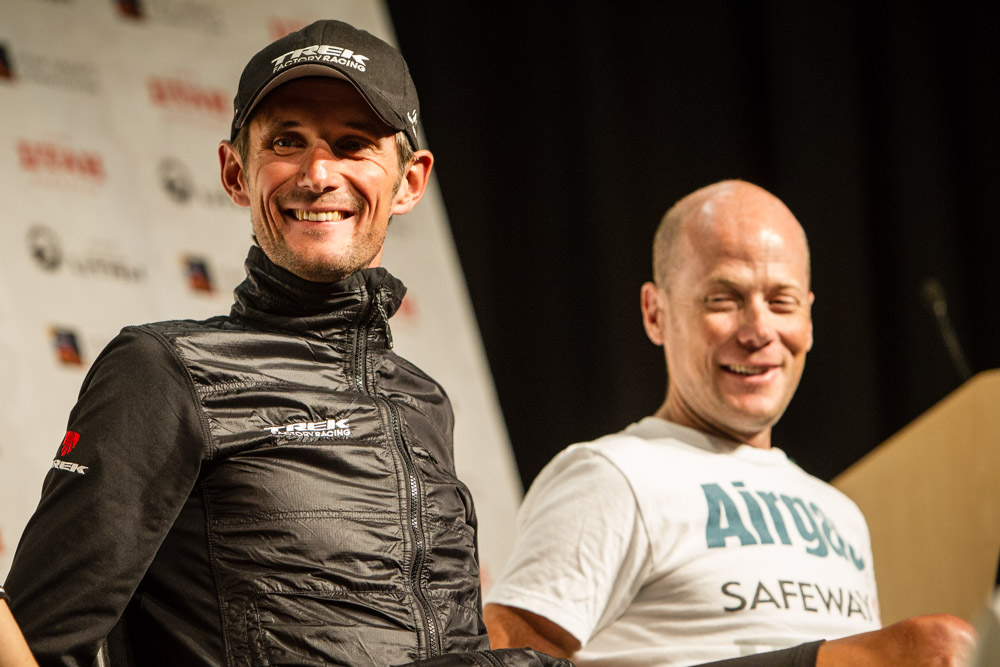
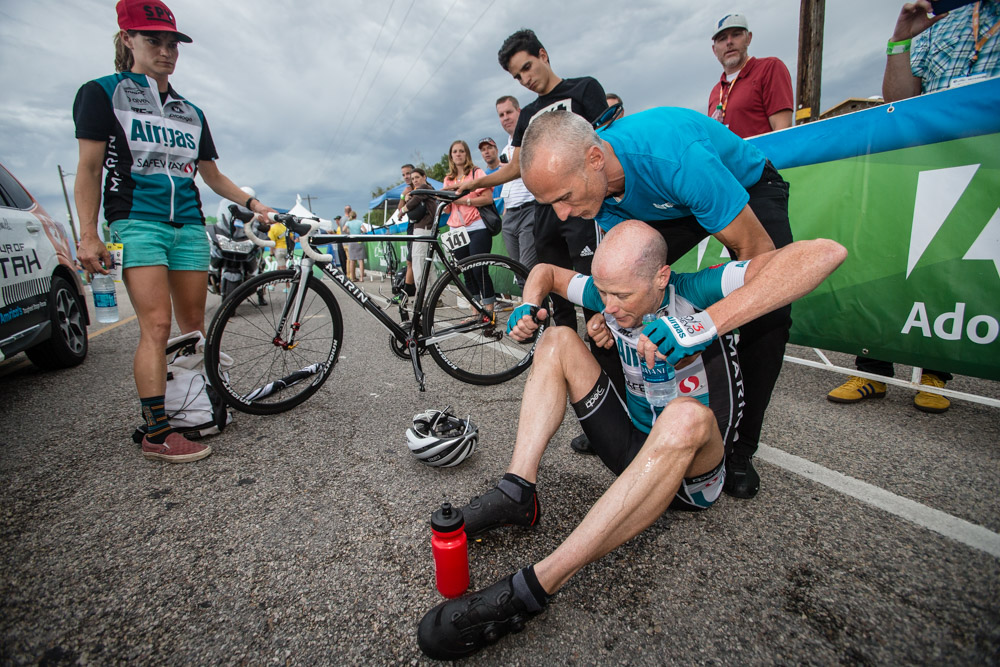
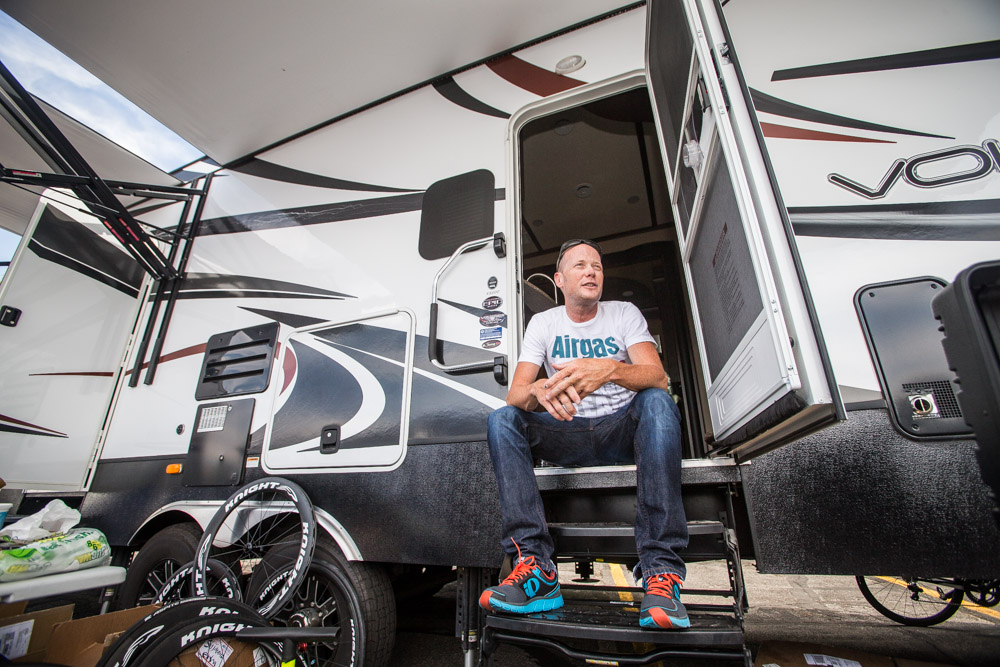
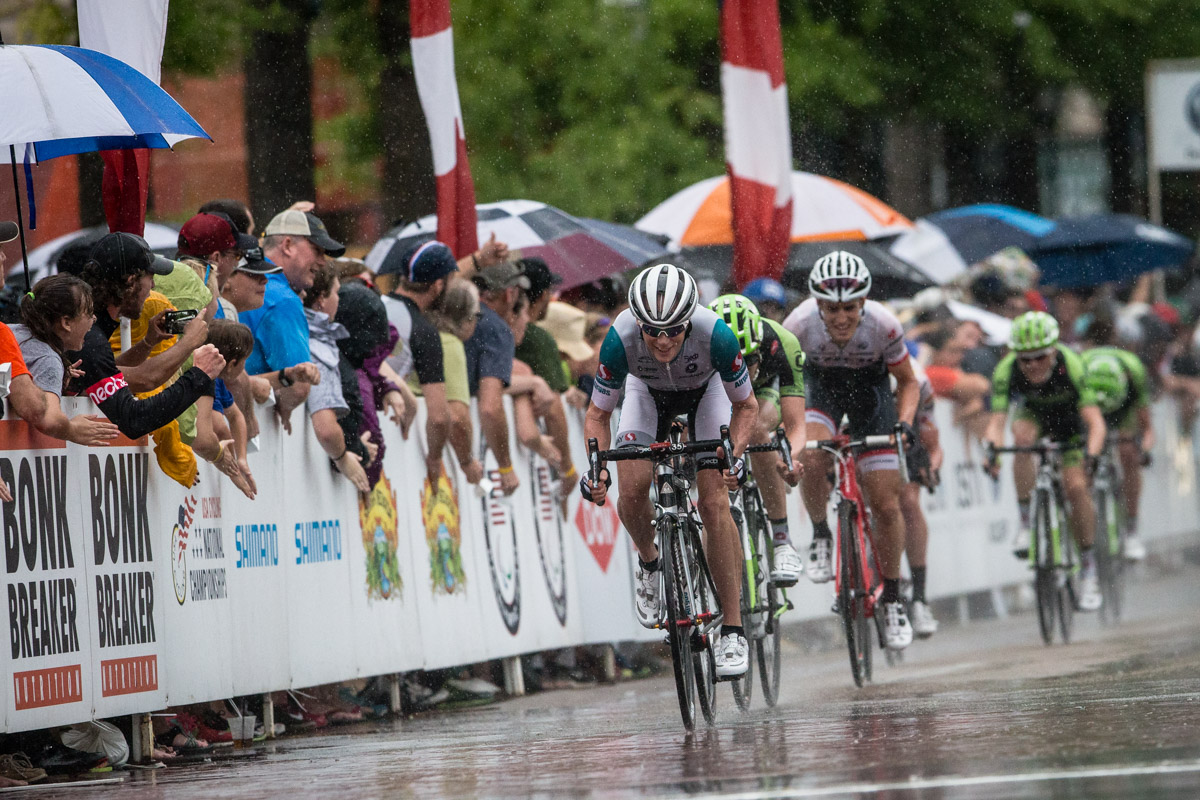
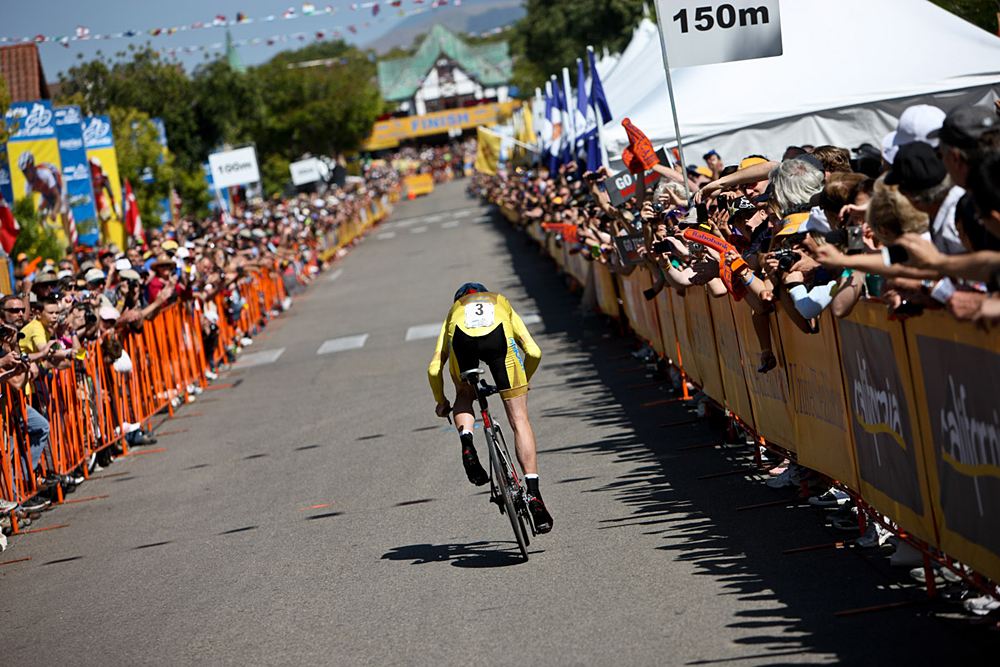
Chris Horner ended months of speculation about his cycling future last week when it was announced he'd signed for 2016 with US Continental team Lupus Racing. The second-year UCI team fired Jure Kocjan, who signed in the off-season, after the governing body provisionally suspended him on February 1 following a positive return for EPO on a retroactive test in a sample he provided in 2012. Lupus Racing announced it had signed Horner four days after dismissing Kocjan.
The 44-year-old winner of the 2013 Vuelta a Espana returned from Europe last year and raced with the Airgas-Safeway team, but a nagging lung infection diminished his performance in the US races he dominated in the mid-to-early 2000s. Horner said he's not fully recovered from the persistent health problem, but he's hoping to come good again for this season and help his team step up to a new level.
Cyclingnews caught up with Horner in a telephone interview from his hotel room outside of Atlanta, where he was taking part in a brief training camp with his team following the official presentation on February 5.
Cyclingnews: Hello, Chris. How have you been doing?
Horner: Not bad. I'm just lying on the bed now waiting for dinner.
CN: How has the weather been down there for you guys? Is it Atlanta?
Horner: We're a little bit south on some nice quiet roads in Callaway Gardens. It's been a little bit chilly but the sun's held the weather back a little bit, so it hasn't been too awfully bad.
The latest race content, interviews, features, reviews and expert buying guides, direct to your inbox!
CN: How long are you guys there?
Horner: I think we just stay until Wednesday. We come in and then fly out, so a pretty short little come in to do some pictures and then get the equipment adjusted, team shots and that kind of stuff. We'll do a little bit of training, but I don't think anybody's getting super fit here. You're just trying to meet the guys and spend some time with them.
CN: And then are you heading back to Bend or down to San Diego?
Horner: I go back to San Diego. It's 73 down there (laughs).
CN: A little more conducive to training?
Horner: Yeah. Bend was a great time over the winter and all that because we had some amazing snow and stuff, but it was time to head south.
CN: So you've signed with a new team for this season, does that mean you've got the lung issues sorted out?
Horner: No, I've still got problems with the lungs, but the team was clear on the issue that I had with it, and they're completely understanding of that they expect from me. They know it could be cleared up tomorrow morning or maybe it hangs around longer. So they understand that it's out of my hands and you just have to wait and see how it progresses. But I've tried a bunch of different meds and hopefully one of them kills the bug down there and clears it all up so I'm back to normal. But when I signed with the team, I of course made that clear. I said, 'Hey, I can be in the front group but I'm missing some power. There's a difference between being in the front group 100 per cent healthy and being in the front group when you've lost 20 per cent lung capacity.'
I'm on a nebuliser antibiotic, so you breathe it straight into the lungs, and the doctors seem to think that will be a better way to go than taking an oral antibiotic. So I'm trying that. I've had a couple people actually email me since I've done interviews about it that have had the same problem, and they told me how they got rid of it. One particular lady has given me some good advice, so it seems to be having some effect, but we'll see what happens here in the next few weeks or month.
It's quite annoying to have, and of course it's detrimental to riding at 100 per cent. The other problem is that people are always asking when it's going to be gone. Well, that's not really my expertise.
CN: Right. You missed that class at med school.
Horner: No, they didn't teach that at 12th grade education. Clearly they haven't necessarily taught it at med school either, because I'm dealing with a lot of doctors who are having a problem figuring it out. So even the intelligent Jedis can't figure it out.
CN: How did the deal with Lupus come about? Were you in talks with them before they had to let Jure go, or was it something that took pace after that?
Horner: Well I don't know when they had their information about that. I talked with [Lupus director Phil Cortes] in maybe August or September of last year and they were interested in me. And then I hadn't heard back, and then maybe a week before I read it on your site is when they had given me a call. And then of course I read on your site where they had the problem there, and I got the call the next day. So I don't know how much that sped things up in terms of opening up a spot on the team or if they already had me planned on staying on and then riding with him. I don't know exactly. For that you'd have to check with Phil. But I had talked with the team a week before I had read anything on your site about that problem, so I'm not sure what affect that had with me.
Last year in September or August [Cortes] called me and told me the team was making the next step up to a bigger budget and a real pro squad, coming in with staff and mechanic and that kind of stuff. Really taking it up to the next level. So I know they were interested in me to be one of the plans to help take things up, but I don't know if by having [Kocjan] leaving the team if that opened up a budget where it made it possible, or of they were planning on having a 16-rider team and [Kocjan's dismissal] made it 15.
CN: What do you think of the UCI going back and doing retro testing on anti-doping samples?
Horner: I think it's fantastic. I think it's a great way to do it. OK, clearly it could be better timing to do it. You do it maybe in the season or something like that. It's kind of weird to have it done where you sign a rider, January comes and team camp comes and the next thing you know they're gone in February. So the timing could have been a little smoother. I don't know if he tested positive through WADA or USADA or UCI – I don't know who did the testing; I don't pay that close attention – but whoever does do the testing if you could find maybe a little bit smoother transition period for something like that so it's not affecting so many teams.
CN: So it doesn't affect a team that had anything to do with it?
Horner: Absolutely. Yeah.
CN: Lupus was a first-year Continental team last season and now they're stepping things up, like you said, and they bolstered the roster in the off-season. It looks like you've got a few more guys with more experience to work with this year than you did on Airgas-Safeway.
Horner: Yeah, but even with Airgas I had a great time with them. Of course, I always had Connor [McCutcheon] with me, or I always had some help there at the finish of races, but I think even more with the team here stepping up a level with a full-time mechanic and team staff, cars, trucks, all that kind of stuff, so that area might be a little easier when you first arrive at the race to get everything organized.
But I had a great time and I would have signed with [Airgas-Safeway, now Team Illuminate general manager] Chris Johnson no problem. He just hadn't finalized the budget yet. I had a great time last year with Airgas, and so whatever Johnson put together, I would have singed with him again. He just didn't have anything set up yet.
CN: And now you're on a team with Mike Olheiser, so another guy who's over 40.
Horner: That's exactly right. I have another guy close to my age.
CN: Somebody who listens to the same music maybe.
Horner: You know what's really funny is I am rooming with both the French guys on the team [Matthieu Jeannes and Thomas Vaubourzeix] and both of them play my kind of music. I went into the room and they've got some Led Zeppelin going on, and I was like, 'Oh, that's fantastic. Alright, you can play that.'
CN: That will make you feel a little more at home.
Horner: Absolutely. And for the two French guys on the team, it seems like a good transition because a lot of the kids on the team speak French, too. They're going to have an easy transition – as easy as one can make it when you're so far away from home.
CN: Have you spoken with the team about the race calendar yet? I know they're hoping to get invited to some of the bigger races: California, Utah, Colorado, Alberta, stuff like that. Have you spoken with them about your specific calendar?
Horner: Those would be targeted races, of course, and then you do the other races in the US: Redlands, San Dimas, Gila, and all the ones you just mentioned. And then I think the team goes over and does Tour of Mexico, which is pretty early. So if I can put together some form and jump in to do that race because it's UCI. Then we'll see if they find anything else outside the US. Of course you have [Tour de] Beauce [in Quebec, Canada] and that kind of stuff. So we'll hit pretty much everything in the US, and then we'll see what else they find along the way.
CN: Beauce is a great race. That might be a good one for you if you can find your climbing legs.
Horner: I did Beauce in like '92, a really long time ago. In fact I was amateur when I did it last time. It was a fabulous race, well put on and all that stuff. I've always wanted to go back, but there's always been a ton of reasons not to go back, so I've never gotten the chance in my whole career. But I did it that one year in '92, and maybe it looks like I'll get a chance to go back and do that this year.
CN: I've only been there once but it was a cool race.
Horner: Right, right. Definitely a good atmosphere up there.
CN: Last year when we spoke at about this same time you were talking about Redlands, where you had won four times and you said you owned that race. You took a lot of grief from your fellow competitors about that. Any bold predictions this year?
Horner: No. Same predictions as last year. Nothing has changed. If I'm healthy I can win the thing, and if I'm not healthy than I'm going to be in the front group. There's only so much you can do if you're not healthy. Clearly last year and the end of the season from the year before I've been sick. It's too difficult to win a race when you show up at Redlands and it's so explosive. We're doing the last climb at 400 to 450 watts all the way up the last climb because everybody has fresh legs. When the lungs aren't 100 per cent you just can't produce that kind of power. If the race was 120 miles long or something that changes. But if the lungs are healthy, then of course I'm one of the favourites. But if the lungs aren't healthy, then I'm one of the guys in the front group but not the favourite.
CN: You're currently 44, and your racing age is 45 …
Horner: Yeah, exactly. Racing at 45 this year.
CN: That's got to set some kind of record.
Horner: It's got to be something, right? I just really want the lungs to come good so that when I'm racing here with Lupus they can really see what I'm capable of doing. And of course, everyone knows the story of how long I've been sick. But if the lungs come good, you'll see the full potential. If they don't come good, then I'll continue to ride like I did last year, which wasn't bad. At certain moments I was destroying the field. At US pro championships and at Philly I destroyed the field at those two races. That wasn't somebody else up there destroying the field, that was me. But you saw at Redlands it was more extreme with the health problems with the lungs. And you saw at Utah how devastating the lung problem was there and I finished fifth overall. That looks like a good result but it wasn't what I was capable of doing. I should have ridden away form the field at that particular race because the legs were amazing. I just didn't have the oxygen to get the job done.
CN: Anymore thoughts on how long you want to keep doing this?
Horner: It just depends on the fitness and the health. We'll see how it keeps going with the fitness, but I don't know. I'm not going to sit here and predict when I'm going to retire. It's fun racing and I enjoy racing in the US. I get to go home whenever I want. I see the kids often. I get away a little bit to go do some fun bike races and then get to pop back, and that's what they pay me to do. So it's a pretty good life, and when the lungs are good it's a really good life. Anyone who's winning will tell you that nobody wants to retire when they're winning. So it's just a matter if the legs are performing and if the health is there.
CN: So I guess it's wait and see what happens then.
Horner: Yeah. And it seems like the Lupus team is really, I mean they're out there to bring awareness to Lupus and all that stuff, but the owners are out there to grow it and see it go big places, so it would be fun to do it and see the team grow.
Growing up in Missoula, Montana, Pat competed in his first bike race in 1985 at Flathead Lake. He studied English and journalism at the University of Oregon and has covered North American cycling extensively since 2009, as well as racing and teams in Europe and South America. Pat currently lives in the US outside of Portland, Oregon, with his imaginary dog Rusty.
